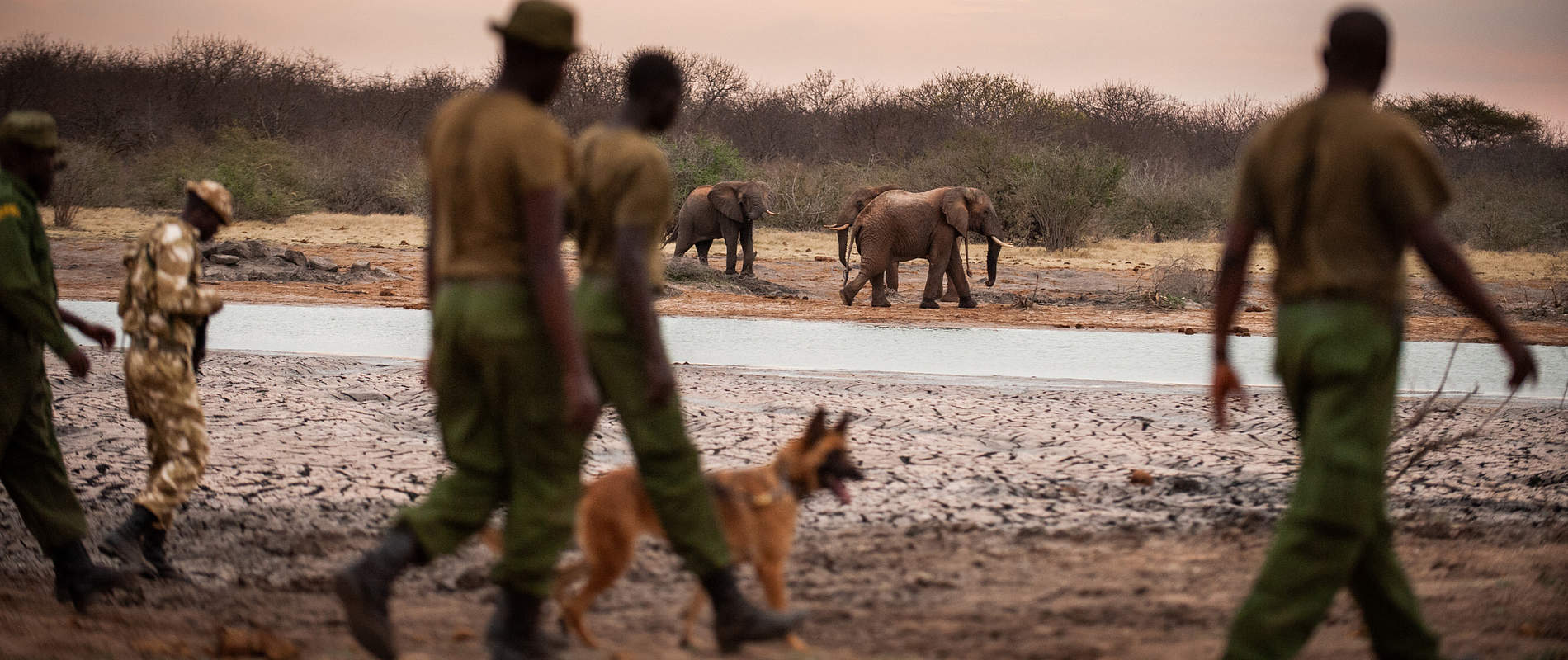Our rangers, working in partnership with KWS, are the frontline defenders of Kenya’s wildlife. For more than two decades, they have been at the vanguard of conservation, tackling the most pressing threats facing Kenya’s wildlife. Today — World Ranger Day — and every day, we salute these fearless people and the sacrifices they make to protect our natural world.



Rangers are a vital link in our conservation work, connecting the dots between all our other field initiatives. What began as one Tsavo-based Anti-Poaching Unit in 1999 has since grown into a robust anti-poaching presence in partnership with the Kenya Wildlife Service, with 18 teams that secure key habitats across the country. 15 of these teams operate within the greater Tsavo Conservation Area, collectively patrolling a vast swathe of wilderness spanning 60,000 square kilometres, which is home to Kenya’s largest population of elephants. In 2014, we expanded our presence to Meru National Park, which provides sanctuary to over 80 rhinos and a host of other species. Under the direction of Mara Elephant Project, we also fund two teams based in the Mau Forest, a priceless water catchment area in the Rift Valley.


Rangers put their life on the line for conservation: It is estimated that over 1,000 park rangers across Africa have been killed in the line of duty over the past 10 years, as per data from Thin Green Line. Just as they are committed to protecting the wilderness, we are committed to their welfare. Two armed KWS rangers who have the power to arrest any suspected wildlife offender accompany each team on patrols. No ranger goes into the field without first graduating from extensive paramilitary training at the KWS Manyani Training Academy. As a result, each team is highly trained in mitigating human-wildlife conflict, ecosystem management, field survival, weaponry use, and capture and arrest. Given their local knowledge and specialised skill sets, rangers are adept at tackling almost any curveball thrown at them: We witnessed this firsthand last year, when more than 80 bushfires ravaged the Tsavo Conservation Area. Our rangers were the heroes of the season, battling the flames with the same dedication that they apply to tracking down poachers, added to that our anti poaching teams are often called upon to help provide additional field support for our Vet teams when treating wildlife or rescuing orphaned elephants.


Even in the best of times, being a ranger is challenging, dangerous work. It entails long days, harsh weather, and threatening encounters with both man and beast. Covid-19 added a whole new set of complexities. The early lockdown measures left millions of Kenyans struggling to make ends meet, which inevitably led to a spike in bushmeat poaching and other illegal activities that endanger wildlife. Recognising this threat, our Anti-Poaching Units chose to forgo leave and remain in the field, where their presence was so direly needed. Operating at our normal capacity allowed us to get ahead of the curve, ramping up patrols with the KWS and working hand-in-hand with communities to combat these looming threats. Given that so many other stakeholders in the Tsavo Conservation Area had to reduce their field commitments, it was particularly vital that we maintain a strong front.


In fact, we established two new Tsavo-based Anti-Poaching Teams in the past year. The Mukoruro Team, which is a joint venture between KWS, Big Life, and ourselves, was rolled out in February 2020. In November, the Galana Anti-Poaching Team took its inaugural patrol. This new unit was formed to provide additional security for the eastern boundary of Tsavo East and the bordering Galana and Kulalu Ranches, which is a favourite habitat for elephants. Bushmeat poaching, ivory poaching, illegal harvesting, and large-scale charcoal burning are some of the greatest threats these teams grapple with on a daily basis. Already, they have made a marked impact on the areas in which they work, driving a reduction in illegal activities.


Our Anti-Poaching Units are ever evolving, adapting to meet the threats of today and get ahead of those on the horizon. When the ivory poaching crisis swept the country in the early 2010s, they rose to the challenge and effectively stamped it out. Ivory poaching was at an all-time low in 2020, and for the first time in 21 years, there were zero reported rhino poaching cases in Kenya. Now, as bushmeat poaching and human-wildlife conflict take their toll on the natural world, our Anti-Poaching Teams are equally dedicated to finding sustainable, effective solutions to stamp them out. While the threats facing wildlife are many and varied, these brave men are working on the frontlines to meet them head-on. If you’re able, please show your support for our rangers by making a contribution to our Anti-Poaching Teams.


